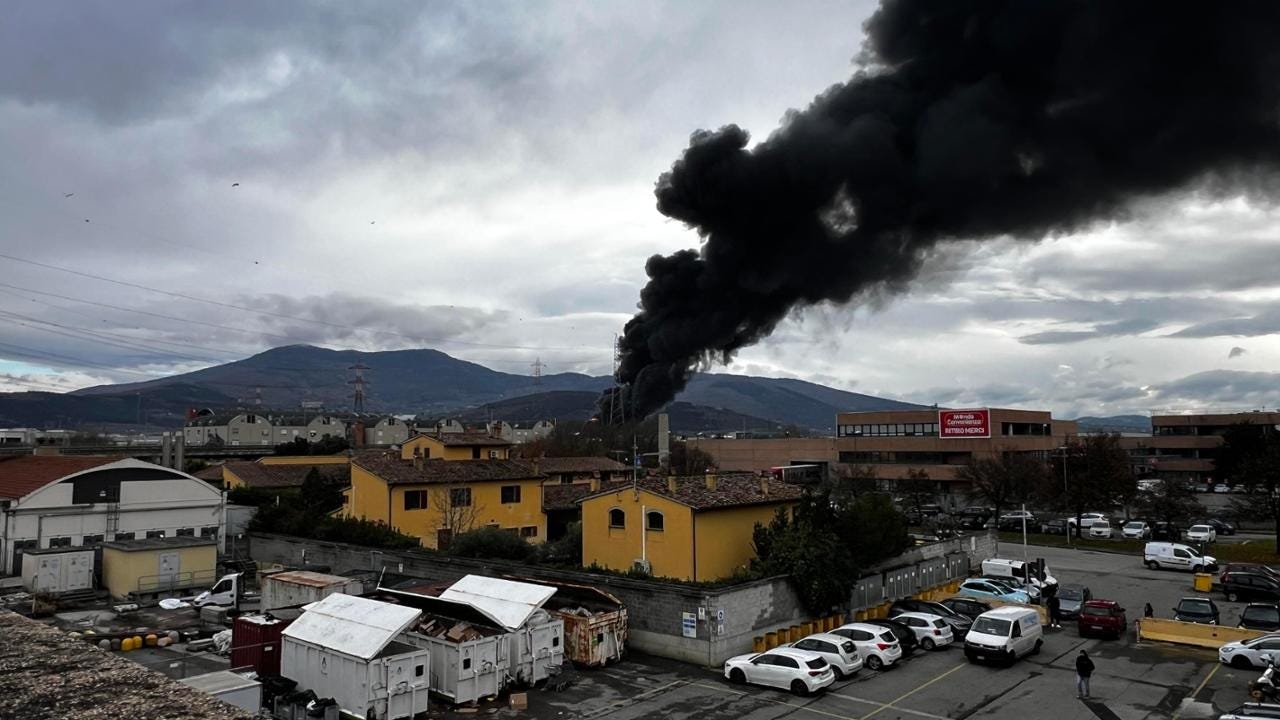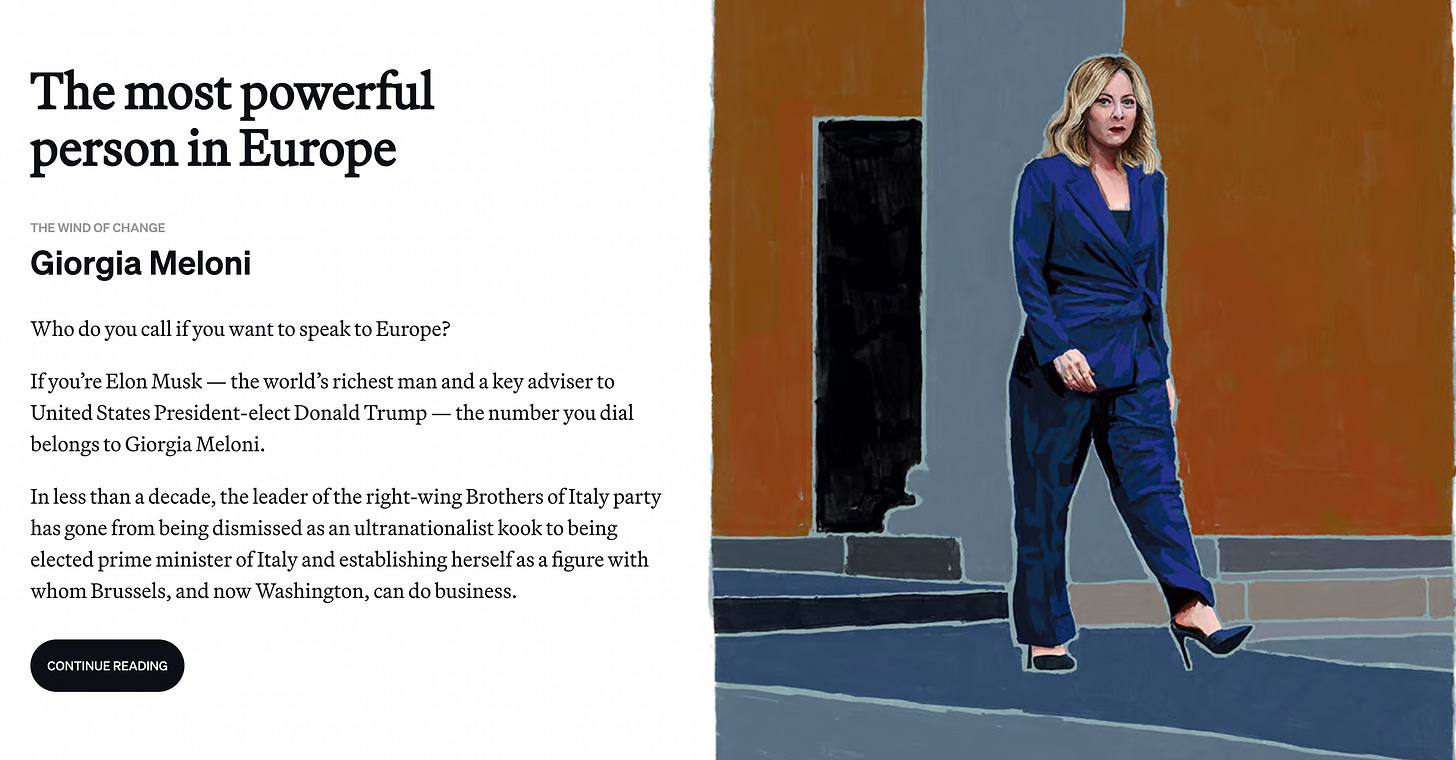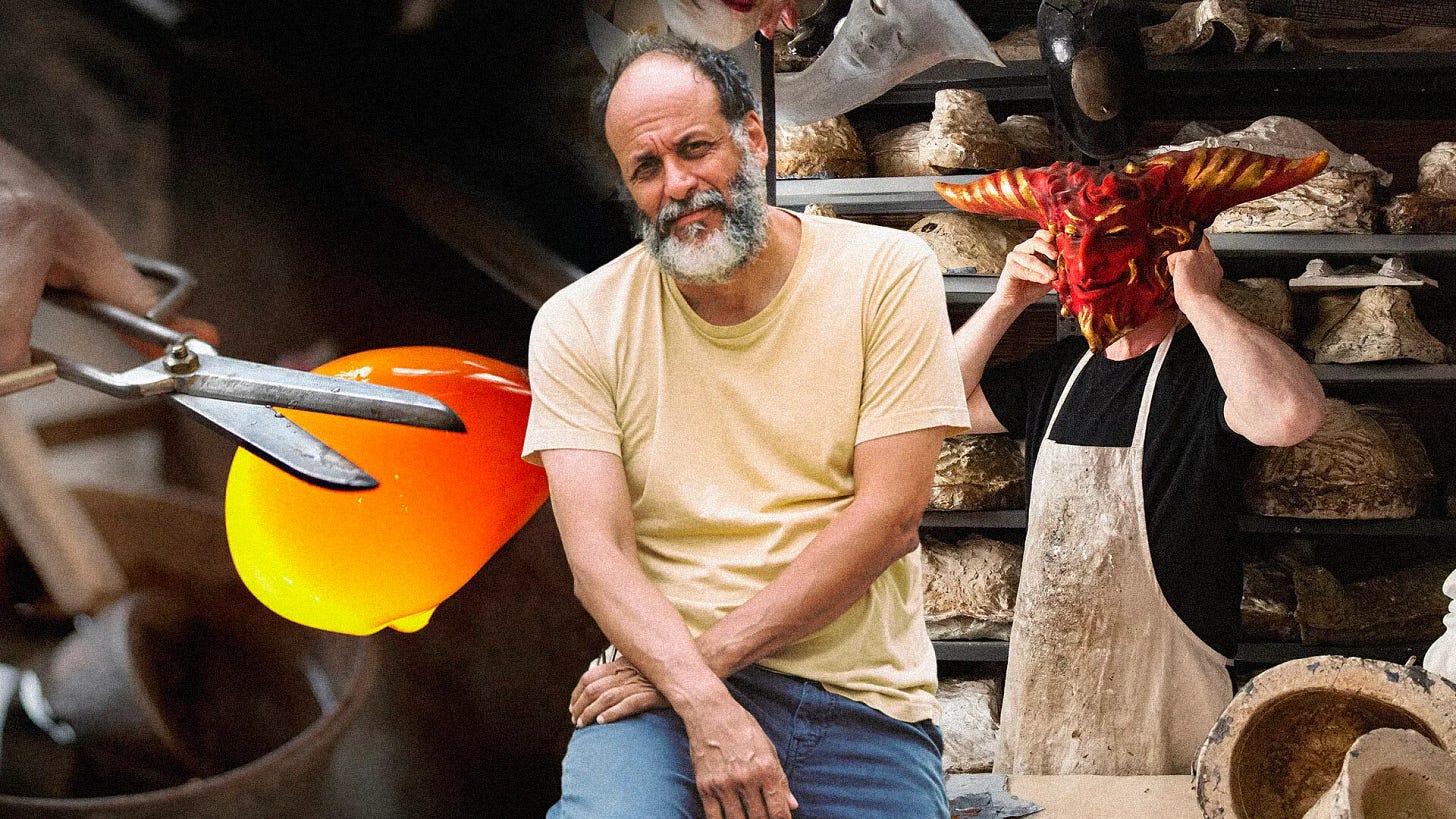This Monday, walking down to my office near Florence, I noticed a strange metallic smell in the air. The odour was acrid, tinged with something plasticky, solder-like, synthetic. I stopped in my tracks. Squinting over the hill, I spotted a thin black cloud, looming across the Arno valley, to the west of the city. A few minutes later I received a message on my phone from the government’s IT-alert system: "Allarme protezione Civile 9/12/2024, 11.25: incident at the Eni Spa industrial plant involving toxic chemicals present in the commune of Calenzano (Firenze), via Erbosa 29. Take shelter inside. Do not approach the plant.” Obviously, I took heed of the instructions. I turned on my heels and ran home. The “incident”, I soon discovered, referred to a huge explosion of petrol, diesel and kerosene at an oil processing facility on the outskirts of town. I didn’t hear the blast myself but I’ve since learnt it shook nearby villages with the force of a small earthquake. The cause of the explosion is still unclear but the consequences are grim: five workers were killed and a further 25 injured. Social media is filled with elaborate theories about Russian sabotage and ecoterrorist plotting. For now, investigations have uncovered no evidence of any such initiative. Not that this renders the events any less serious. As the GKN workers’ collective summarized in a powerful communiqué: “We will find out later how toxic the cloud will be. How much life is being taken away from us by the air we breathe now, the food we will later eat… we don't need tragedy to say we were right; to reiterate how toxic the fossil economy is.” Health risks aside, deaths at work are an all too common occurrence in Italy. 890 people have died on the job so far in 2024 — a +2.5%increase on 2023 rates. This is a worrying trend to say the least, and the implications are, by definition, morbid.

Giorgia Meloni may be floundering domestically, but in the eyes of the world’s journalists the Italian PM can still apparently do no wrong. While increasing numbers of Italians are taking to the streets to strike against this government’s brutal austerity, world news outlets are telling a different story. “The markets” we’re told are “rewarding Meloni” for her “prudence”: Italy’s borrowing costs are at the lowest level in two years, and the infamous spread (the gap between Italy’s 10-year government bond and that of Germany) has fallen to 1%. Not that this means anything for everyday life, of course. Grocery and energy costs continue to rise, public services are on the verge of collapse and neo-fascist ideology is permeating through the nation’s cultural institutions like wildfire. But who cares about all that, eh? Instead, we read the New York Times celebrating Meloni’s “many advantages” while Donald Trump praises her “fantastic energy.” POLITICO has even labelled Meloni “the most influential woman in Europe for 2024”, based on a pretty dubious methodology. Personally, I find it sickening to see so many dancing to the drum of an authoritarian leader with a history of homophobia and racism, who is flaky on foreign policy, who wants to erode civil rights and tear up the constitutional foundation of the nation she apparently loves so much. There’s no denying Meloni is winning the PR game here. The question is: at what cost?

But enough of that for now. Life’s really too short. Instead, it’s time for something silly: last weekend, on 5-7 December, hundreds of digital creatives gathered in Turin to celebrate the IVth edition of Italy’s wonderful Memissima Festival — a festival of meme culture. Since its founding in 2021 the festival has grown from strength to strength and now enjoys funding from actors as diverse as the Fondazione CRT, URMET and even, amazingly, the state department of commerce, industry, agriculture and artisanship (!) This year’s edition was, for that reason, the most ambitious yet. In addition to the usual comedy panels, the organizers set up workshops with some of the country’s biggest social media stars, many of which were focused on more serious topics. Vabe RagaA gave a talk on ‘Folk-lore: then and now’ Madonnafreeeda spoke about “how to use algorithms to narrate real atrocities” and Cyaomamma addressed “poetry and algorithmic violence.” The climax of the event, of course, remained the ‘meme awards ceremony’, which recognized achievements in a number of categories including ‘Meme IGP’, ‘Scuola Universita’ ‘Politica e attualita’ and Trash/Dank/Nonsense’ to name just a few. Check out the full list of winners here, and head over to the festival’s instagram page to view some video clips from the event.
Arts and culture: Film Talk
Italian director Luca Guadagnino has been on fire these past couple of years, to the point that, by now, he has a strong claim to being one of the country’s most internationally visible cinematic ambassadors. Well, last week Guadagnino took part in an hour long discussion with the comedian, writer, actor, and musician Mark Maron on the WTF podcast — and I think it’s well worth a listen! The two cover a lot of ground: the conversation starts, as you’d expect, with a deep dive into the release of Guadagnino’s adaptation of William Burroughs’s Queer, but they quickly move on to discuss a whole range of topics including colour theory, psychoanalysis and intergenerational perspectives on horror movies. Guadagnino even offers some advice on American-Italian politics, as he puts it to the podcast’s listeners: “we’ve been here before with Berlusconi… you have to fear what they will do with the courts, you have to fear people accepting a kind of moral deregulation, you have to fear the Trump in you.” Check out the full discussion here or via the link below [from 17 minutes in].
Next up: a nostalgic wintery listen, just in time for the festive season. Mina Anna Mazzini, better known by her stage name ‘Mina’ has got a new album out, the 76th record of her long career, which, in its own right, is surely a fact worth celebrating! Mina is best known for her 1959 song “Tintarella di luna”, one of my favourites of the era, and which was a huge international hit back in the day. Over the decades the Anglophone world seems to have forgotten about the singer, but — guess what? — she’s still going. In fact, Mina has been performing and recording virtually non-stop for seven decades, despite the fact she’s now 84 years old and has almost no public left. And there’s something beautiful about that, isn’t there? Mina, who gives no interviews, and has no reason to make music these days except genuine passion, seems to be committed purely to the art. Her latest album ‘Gassa d’Amante’ is a classic record of Italian ballads with only the lightest of modernizing touches. Instead, the singer allows herself to remain exposed; a proud pop diva with a lot to offer anyone who still wants to listen. Check out the full album here.
Recipe of the Week: artisan panettone
This week La Cucina Italiana published its annual list of the best artisan panettone, many of which you can order for home delivery. The good news is the selection is as varied and as impressive as you’d expect. There are a dizzying 80 panettone on this list; a huge number which, on the plus side, will cater for all tastes, but which, on the negative, risks being totally overwhelming. There are a few classic brands. Italian foodies will recognise well-known names such as Iginio Massari and Antonio Campeggio. Yet there are some new trends too. The savoury panettone, for one, continues to attract interest, and the variety of funky glazes and toppings is growing year by year. Personally, I’m struck by the vast number of entires by southern chefs from Campania, Puglia and Sicily. If once upon a time the panettone was the singular preserve of the Lombards and Venetians, things are clearly changing. Today, it’s the mezzogiorno that’s showing the world how it’s done. Check out the full list here and place your orders by the weekend to ensure delivery in time for the feste [note: while most pasticcerie only deliver to Italy, some do offer international shipping. Check the individual terms and conditions for further info.]

I’m Jamie Mackay, a UK-born, Italy-based writer, working at the interfaces of journalism, criticism, poetry, fiction, philosophy, travelogue and cultural-history. I set up ‘The Week in Italy’ to make a space to share a regular overview of the debates and dilemmas, innovations and crises that sometimes pass under the radar of our overcrowded news feeds, to explore politics, current affairs, books, arts and food. If you’re a regular reader, and you enjoy these updates, I hope you’ll consider becoming a supporter for EUR 5.00 per month. I like to think of it as a weekly catch-up chat over an espresso. Alternatively, if you’d like to send a one-off something, you can do so via PayPal using this link. Grazie!




